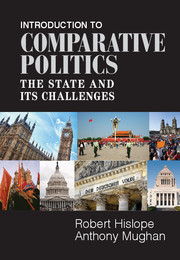2 - States and Politics
Published online by Cambridge University Press: 05 June 2012
Summary
States, then, provide a framework or container for the practice of politics. The task of this chapter must therefore be to address the question: What is politics? Is it a dignified and noble activity that involves serving the public good? Politicians often speak this way, lauding colleagues or other officials for their public service. Or is politics a negative, corrupting, and perhaps evil form of human behavior? Common people often speak like this, painting the politician as a crook or depicting a government's loss of an election as “throwing the rascals out.” Philosophers in the Western tradition are divided on this question, and some have even constructed in their writings ideal worlds without politics, but human history has yet to record the existence of such a community.
What is your conception of politics? Is it a dignified vocation or a sordid game involving corruption, power, and greed? This is not an easy question to answer, because how one addresses it invariably reflects prior political values. Politics as a concept is a contentious term involving competing traditions of political thought. One cannot simply offer a definition of it and thereafter remain politically neutral. Rather, defining it requires one to “take sides” in some key philosophical disputes.
- Type
- Chapter
- Information
- Introduction to Comparative PoliticsThe State and its Challenges, pp. 30 - 61Publisher: Cambridge University PressPrint publication year: 2012



